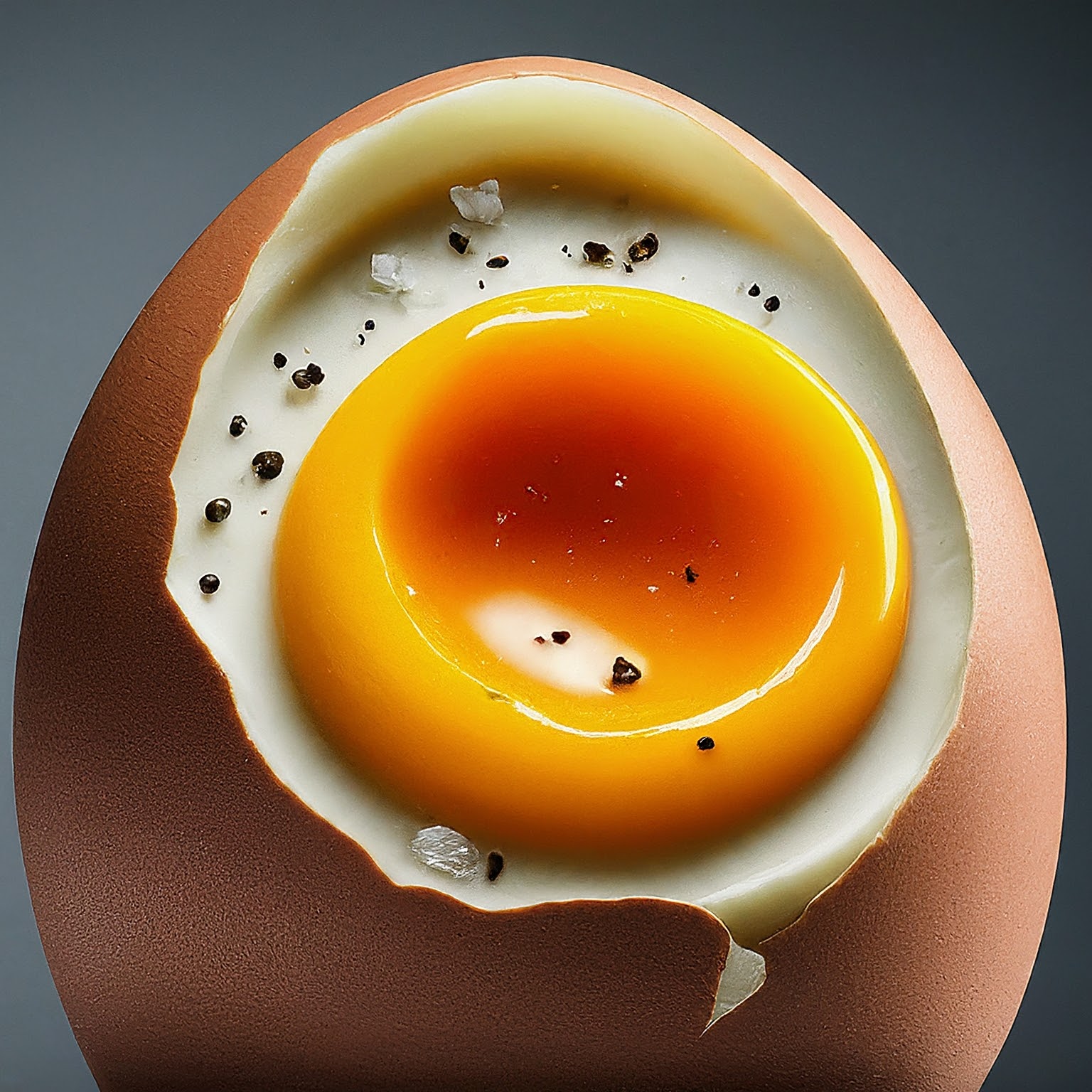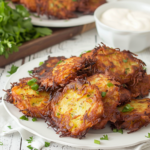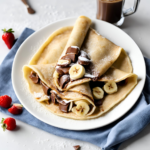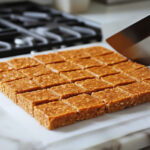Hard boiling eggs is a kitchen essential. Our recipe ensures perfectly cooked eggs with firm whites and creamy yolks every time. Whether for breakfast or a snack, these versatile eggs are easy to prepare and enjoy. With just a few simple steps, you’ll master the art of hard boiling eggs, making them a convenient and nutritious addition to your culinary repertoire.
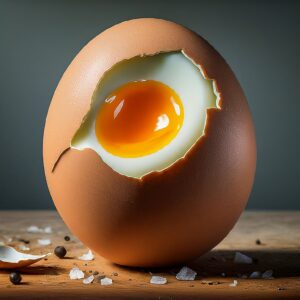
Historic Hard Boiled Egg Recipe
Equipment
- 1 Medium saucepan
- 1 Spoon
- 1 Timer
- 1 Bowl of ice
Ingredients
- 6 large eggs
- Salt and pepper
Instructions
- Place the eggs in a single layer at the bottom of a saucepan.
- Cover the eggs with cold water, ensuring they are submerged by at least 1 inch.
- Place the saucepan over medium-high heat and bring the water to a boil.
- Once boiling, remove the saucepan from the heat, cover with a lid, and let the eggs sit in the hot water for 10-12 minutes.
- While the eggs are cooking, prepare a bowl of ice water.
- After the cooking time is up, use a slotted spoon to transfer the eggs to the bowl of ice water to stop the cooking process.
- Let the eggs sit in the ice water for at least 5 minutes to cool completely.
- Once cooled, carefully peel the eggs and enjoy them immediately, or store them in the refrigerator for later use.
Notes
without a timer how can i perfect the cook of the egg?
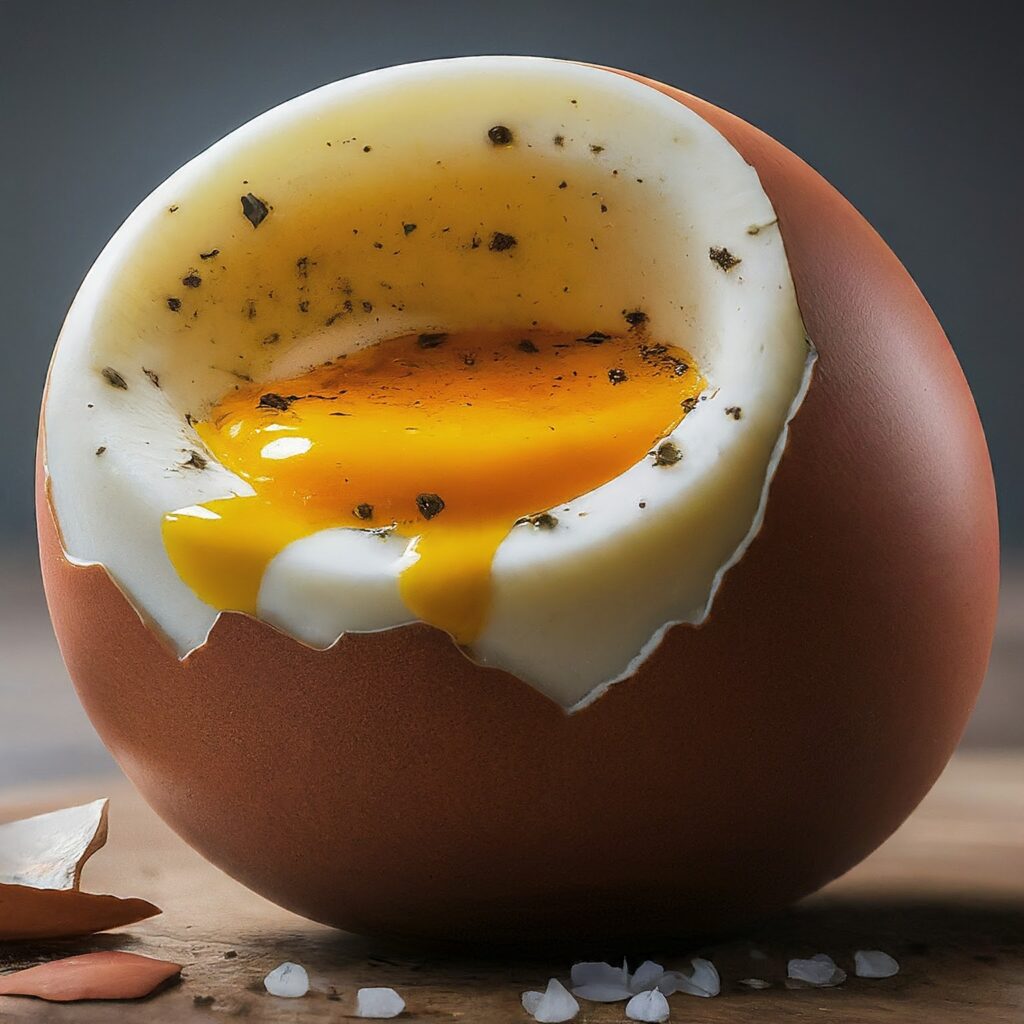
Without a timer, you can still achieve perfectly cooked hard boiled eggs by using the following methods:
- Visual Inspection: Watch the eggs closely as they cook. Once the water reaches a rolling boil, reduce the heat to a gentle simmer and cook the eggs for approximately 10-12 minutes.
- Test for Doneness: After about 10 minutes of cooking, carefully remove one egg from the water using a slotted spoon. Allow it to cool slightly, then gently crack and peel it to check the consistency of the yolk. If it’s cooked to your liking (firm but still slightly creamy), the rest of the eggs are likely done as well.
- Float Test: Another method is the float test. As eggs cook, gases form inside the shell, causing older eggs to float. Once the water is boiling, gently place the eggs in the water. If an egg floats to the surface, it’s likely older and more cooked, while fresh eggs will sink and cook more evenly.
- Ice Bath: Regardless of the method used to determine doneness, immediately transfer the eggs to an ice bath after cooking to stop the cooking process and prevent overcooking.
how can i make the eggs not smell so much?
To reduce the smell when cooking hard boiled eggs, you can try the following tips:
- Add Vinegar to the Water: Adding a splash of vinegar to the water before boiling can help reduce the smell of sulfur that sometimes occurs when cooking eggs.
- Cook with the Lid On: Cooking the eggs with the lid on the pot can help contain some of the odor.

